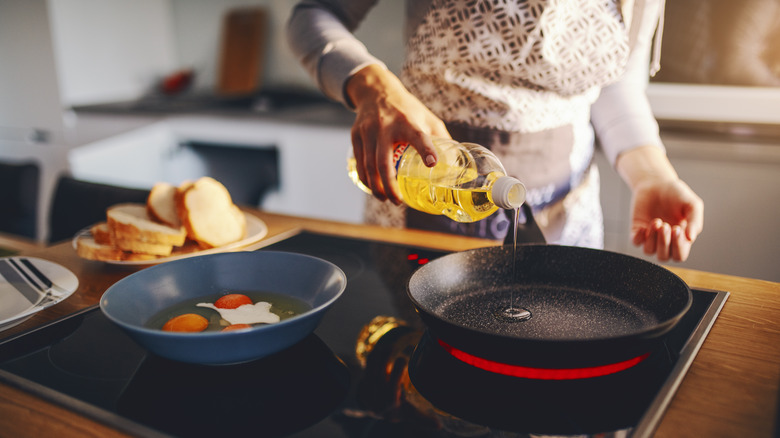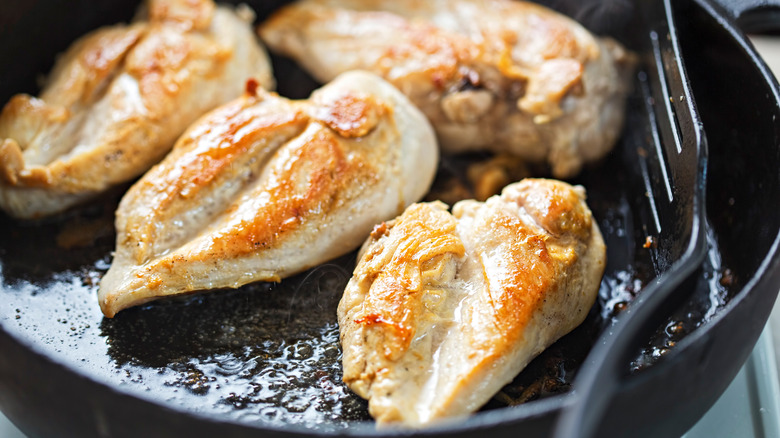Why Hot Oil Spits And Splatters When You Add Food
It never fails: The oil in your skillet is nice and hot — shimmering, slightly smoking. You add your steak (or chicken, or veggies, or whatever you're making), and you're suddenly pelted with splatters of hot oil. You soldier through it, flinching as your forearms get hit with little spurts of heat. Your oven's backsplash is a greasy mess, and don't even mention the stovetop. Why does this happen? It almost feels like the oil is taking offense at being asked to cook something.
Like so many culinary whys, it's all down to science. In this case, the attack of the angry oil is caused by the water undergoing a rapid physical change. Foods contain some degree of moisture, even if you've dried them thoroughly. When the water in or on that food makes contact with the hot oil, its density causes it to sink. It then begins to heat up at an incredible rate, zooming past its boiling point and rapidly turning to steam. This steam expands violently, creating tiny pockets of pressure that erupt through the surface of the oil, causing it to pop, spit, splatter, and send many a cook scurrying backward when they should be tending to their skillet.
Splattering oil can be uncomfortable at best and dangerous at worst. To avoid potential fires, never pour water into hot oil. As for protecting yourself from those spurts that arise from the moisture in food, there are a few kitchen and food hacks you can implement.
Tips for fewer hot oil splatters while cooking
The best way to avoid the dreaded splatter of hot oil is to remove as much moisture from the surface of your ingredients as possible before cooking. Thoroughly dry vegetables and fresh herbs with paper or kitchen towels, and pat proteins dry as well. This is already important when pan-searing steak or browning other foods because dry food allows the Maillard reaction (that delicious browning process) to occur — so this step accomplishes two goals.
A pinch of salt added to a pan of hot oil can also lessen the spitting and splattering. Depending on what you're cooking, you'll still have a few spurts of oil when employing this trick, but nowhere near the splatter-fest you'd get in a saltless pan. Keep in mind that this tip works with a tablespoon or two of oil used for sautéing or pan-cooking; it's not appropriate for deep-frying.
Finally, use your highest-quality stainless steel pan for pan-frying. Lower-quality stainless steel can distribute heat unevenly, resulting in hot spots that lead to more oil splatters. In the end, dry food, a good pan, a little salt, and maybe a mesh splatter screen or silicone splatter guard should be enough to keep the flying grease at bay, saving you a little pain and clean-up time.

